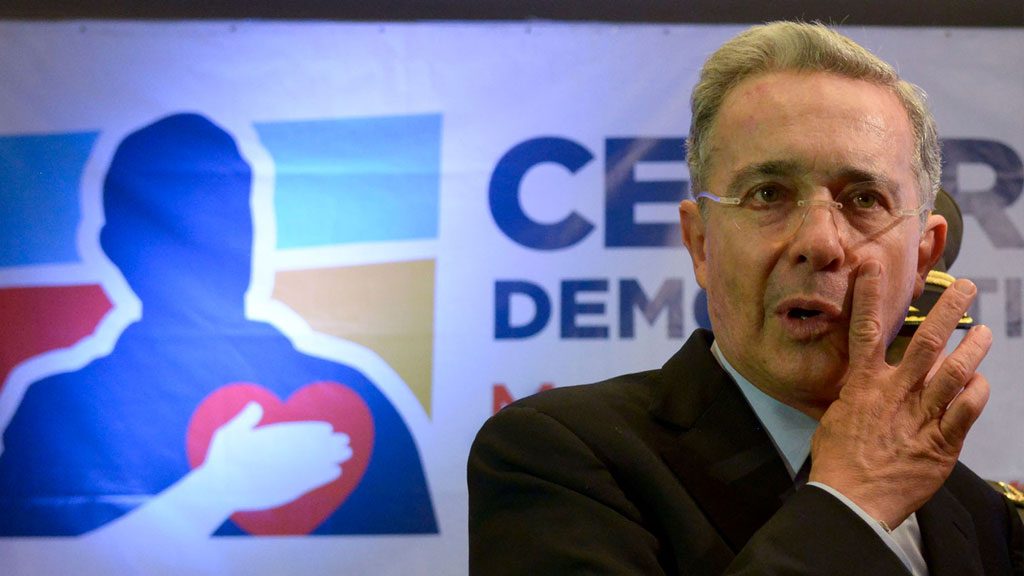Colombia’s conservative opposition, led by former President Alvaro Uribe, said Wednesday it would not respond to a ceasefire with far-left FARC rebels until more details are known.
While in Cali to promote a “no” vote in an upcoming plebiscite that seeks public ratification of a pending peace deal, Uribe said to “not react to the impulse of first impressions.”
“Let’s wait until they communicate what has been agreed to reflect and transmit” substantial criticism on the ceasefire, details of which will be revealed on Thursday in Cuba.
Colombia government and FARC rebels confirm historic ceasefire
Uribe, who led major military offensives that pushed the FARC away from cities and economically important areas when president between 2002 and 2010, has been the main critic of the ongoing peace talks.
His party, the Democratic Center, has been in Congress since 2014 and has dedicated a large part of its congressional work to opposing Santos and the peace talks they consider too lenient for the guerrillas who are accused of major human rights violations.
Former President Andres Pastrana, who unsuccessfully held failed peace talks with the FARC between 1999 and 2002, did speak out against the ceasefire.
According to Pastrana, the ceasefire “opens a door to anti-democratic institutional chaos.”
The prominent Conservative Party member criticized Congress for “surrendering its constitutional role” after approving temporary reduced powers in the months following a peace deal.
“Those who do not agree with the thesis of ‘anything goes’ and agree [to a deal with the FARC] at all cost even if it’s put above the Rule of Law are the true friends of peace.”
Former President Andres Pastrana
The two former presidents’ viewpoint represent that of a significant part of Colombia’s electorate that opposes a deal that allows the guerrillas to enter politics while allowing the guerrillas to stay out of prison under the condition they fully cooperate with justice.
While controversial in Colombia where millions have been victimized by the conflict, the ceasefire has received broad international support as it puts a definitive end to more than half a century of violence between the FARC and the state.
US to take part in Colombia ceasefire ceremony in Cuba
The FARC has been upholding a unilateral ceasefire since July last year. However, the group was formally still a major target for the military.
The warring parties are expected to sign a formal peace agreement within months after which the Colombian public will be asked for ratification of the talks.



